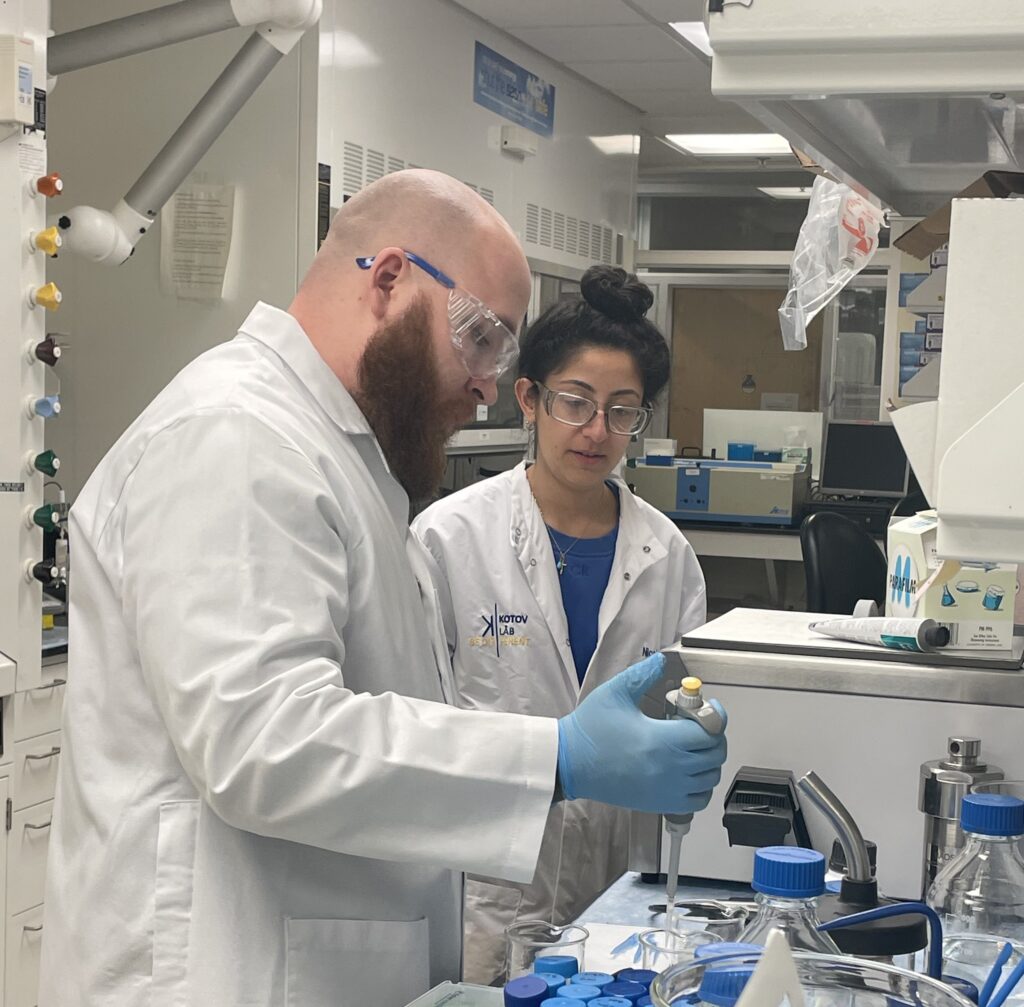2024 Cadre

OLUBUKOLA AKINBAMI
Laboratories
Mao (UM) & Bogdan (USC)
Innovation Focus
Network Analysis
Military Service
US Army
Personal Statement. “I am a cognitive science major performing research under Professor Paul Bogdan (USC), Prof. Xiaoming Mao (UM), and Jayson Sia (USC). My research focuses on developing Python code for network analysis to develop a model that describes the human brain and its structure. This can be used to demonstrate and predict how an abnormal brain structure is represented mathematically compared to a normal brain structure. Eventually, our model may be used to predict what factors can be modified to aid in returning an abnormal brain structure to that of a a normal one. In my former life I was a non-commissioned officer in the US Army contributing to background and security clearance management. The VetIF program has allowed me to get access to skills, mentoring, experiences, and support that otherwise would not have been available to me. It has left me feeling well positioned to pursue a graduate program in either clinical or non-clinical spaces, while also providing outstanding networking opportunities.”
Skills Development:
- Basic & applied Python coding
- Data visualization and interpretation
- Network analysis
- Intuition regarding the interplay of theory and experiment
- Complex system modeling across social, biological, and physical science domains

STEVEN CRECHIOLO
Laboratory
Cesnik (UM)
Innovation Focus
Aerospace
Military Service
US Marine Corps
Personal Statement. “The VetIF program allows me to bridge the gap between academic pursuits and my basic needs by providing me with financial support, research skills, and an outstanding community of mentors. As a first-generation and non-traditional student, the program allows me to fully engage in an environment that I otherwise may struggle in. I am a materials researcher in Professor Cesnik’s lab; Professor Cesnik has worked as an aerospace researcher for many years and has proven to be a vital component to the field at large. I intend to learn as much as I can from him and his team; I anticipate using that knowledge towards aerospace applications in both the near and distant future.”
Skills Development:
- 3D printing and additive manufacturing
- Composite formulations
- Electrical and mechanical testing
- Complex system modelling and prediction
- Nano- and micro-scale imaging

BRANDON OLSON
Laboratory
Kotov (UM)
Innovation Focus
Bio-mimicry
Military Service
US Marine Corps
Personal Statement. “I am pursuing a degree in neuroscience at the University of Michigan. Before coming to Michigan, I was a Marine air traffic controller for 9 years, during which time I completed my associate of science degree and paramedic certification. When I have spare time, I enjoy being in nature or trying new things. I am pursuing a path to medical school with a focus on neuroscience and a passion for translating research and innovation skills in the area of complex systems into clinical outcomes. The veteran’s innovation fellowship has had a profound impact on not only my success as a student, but also on my entire career trajectory. Before the fellowship I experienced financial hardship, insufficient mentorship with my goals in mind, lack of research opportunities, and high levels of stress in most aspects of my life. The fellowship has remedied my biggest hardships and at the same time challenges me to achieve more. I am currently working in the Kotov lab synthesizing chiral carbon nanomolecular particles. This work builds a foundation for continued research of the medical applications these systems. The experience thus far in this fellowship has been invaluable and the support it provides remains instrumental to the achievement of my aspirations.”
Skills Development:
- Wet laboratory & synthesis skills
- Self-assembly & multi-scale chirality
- Nano- & micro-scale imaging
- Spectroscopic methods
- Mechanical & electrical testing

JEBRIL THAXTON
Laboratory
Liu (UM) & Thuo (NCSU)
Innovation Focus
Nano-sensors
Military Service
US Navy
Personal Statement. “I am currently pursuing a degree in electrical engineering at the University of Michigan and serve as a research fellow for the Veterans Innovation Fellowship with the Center for Complex Particle Systems(COMPASS). I grew up in the Metro Detroit Area and served 4 years in the US Navy as a nuclear plant operator on onboard USS Theodore Roosevelt. I have recently interned at General Motors where I had the opportunity to work as a controls engineer. Currently, I am apart of Laboratory of Emergent and Galvanically Orchestrated Systems (LEGOS) Lab group where we conduct research on nanoscale materials. Upon graduation I plan to pursue a PhD in electrical engineering, with a research goal of contributing to the future of optical and photonic materials. The VetIF program has greatly impacted my education and professional development. Having experts and leading innovators in my network and as mentors will allow me to take on a wide range of challenges. This fellowship is putting me in the best position to succeed in graduate school and beyond, by helping me gain a deeper understanding of my research interests, strengths, and areas for improvement. I am very excited to be working with Professors Albert Liu and Martin Thuo on next-generation material systems.”
Skills Development:
- Memristive devices and sensors
- Lab-on-a-chip design & production
- Photonic & optical applications
- Nanoscale spectral imaging
- Device & electrical testing
About the 2024 Cadre. The 2024 Cadre is the first class of Veteran Innovation Fellows to be selected by COMPASS to pursue an undergraduate experience founded in both basic and applied research. They meet bi-weekly as a cadre to support each other and discuss their research, academic, and life experiences while navigating the life of a student-scholar.
This material is based upon work supported by the National Science Foundation under Award No. 2243104.
Any opinions, findings and conclusions or recommendations expressed in this material are those of the author(s) and do not necessarily reflect the views of the National Science Foundation.
